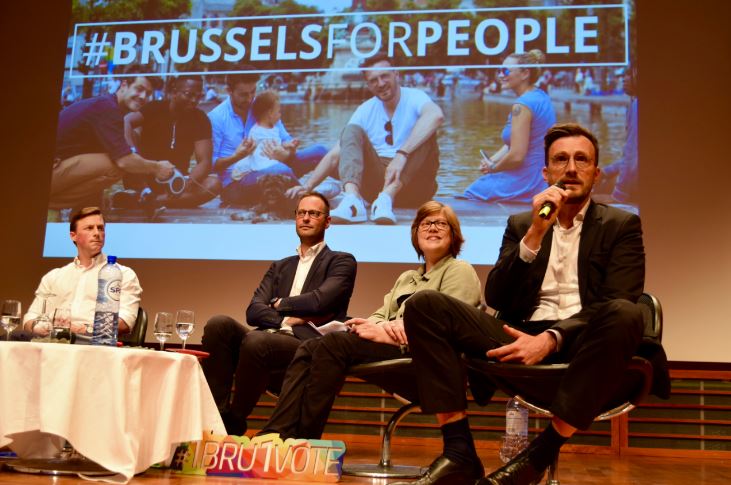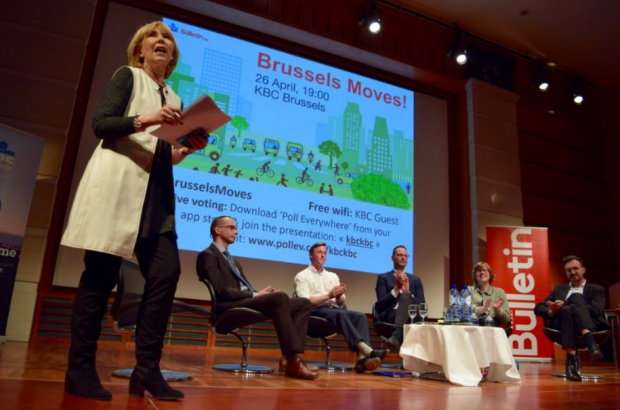- Daily & Weekly newsletters
- Buy & download The Bulletin
- Comment on our articles
Brussels Moves! debate: People power required to bring about political change in Brussels
What will mobility in Brussels look like in 2030, and how can the city’s international community help shape that future? That was the topic up for discussion at The Bulletin’s Brussels Moves! event at KBC Brussels on Thursday evening, featuring a panel of experts and an audience of concerned citizens.

The debate began with each panellist presenting their vision of perfect mobility for the capital of Europe. Dr Imre Keseru of the Vrije Universiteit Brussel wants to see sustainable, human communities, where people walk and cycle everywhere because they live close to everything they need, and where the elderly, those with disabilities and those without access to smartphones or credit cards are equally able to participate.

For Ischa Lambrechts of Beci, the Brussels chamber of commerce, the dream is of a more connected city, where all the available technological platforms are integrated and where citizens are more conscious of how much they drive.

Brussels Green MP Arnaud Pinxteren believes that a city for children is a city for everyone and wants to see better air quality as a result of more efficient mobility, driven by above-ground public transport that serves every part of the city. Pascal Smet, meanwhile, mobility minister for the Brussels-Capital Region, is aiming to transform Brussels from a city for cars into a city for people, giving public space back to citizens and making it somewhere people can meet, talk, do business or fall in love.

None of these aims can be achieved without a political paradigm shift. So Smet also wants to speed up the decision-making process by reducing the layers of government, and to get rid of the language-based parties in Brussels politics. And Nora Bednarski, representing the #1Bru1Vote campaign for increased voting rights for non-Belgians, wants the international community to have the right to vote in regional elections, a move that would allow them to influence the decisions made about mobility and air quality in their city, among other issues.

There are numerous measures that could contribute to this vision of perfect mobility in a human city, according to the panel: changing attitudes towards cars, encouraging more individual responsibility, cutting the amount of parking, getting rid of company cars, introducing financial incentives and penalties, improving suburban trains, making public transport more accessible, building more cycle lanes and designated car-sharing lanes, encouraging more flexible working practices among employers, making the market easier for innovative companies to introduce new platforms… A vote among audience members showed that reducing the number of cars on the road was the priority in bringing about change.
However, the message from the panel was that any solution has to include everyone, with public and private actors working together and with citizens playing their part. With 175,000 commuters in individual cars coming into Brussels from outside the city every day, people are going to have to get used to sharing. The Flemish and Walloon ministers in charge of the roads those commuters drive on will have to work on measures to encourage this. And any fiscal incentives have to be decided at a federal level.
According to both Smet and Pinxteren, the political will for change is not currently there, but the city’s growing international population and evolving attitudes among the younger generation means that governments will start to feel the pressure from society to make the shift. Allowing everyone in the city to have their say in issues that affect their everyday lives – and help drive politicians to make those changes – is the motivation behind the #1Bru1Vote movement. Bednarski: “Until we have all Brussels residents involved in helping define policy through the democratic process, we won’t have policies that accurately reflect the wishes of citizens.”
Photos: Paula Dear



















